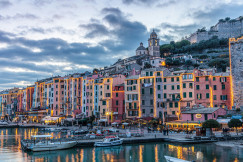Projects
07 March 2025
MONA: Promoting sustainable tourism in North-Western Europe
Projects
07 March 2025
Ecotourism
Rural tourism
Governance of tourism destinations
+7 more
Login / create an account to be able to react
-
6

The MONA project promotes sustainable tourism in north-western Europe by encouraging eco-friendly transport, inclusive route planning and sustainable visitor behavior.
BENEGO - Grenspark Kalmthoutse Heide
Breda University of Applied Sciences
Breda University of Applied Sciences
KU Leuven
Montagne de Reims Regional Park
National Park Utrechtse Heuvelrug
Natuurmonumenten - National Park Veluwezoom
Regional Park Scarpe-Escaut
Tourism Province of Antwerp
Tourismus Zentrale Saarland GmbH
VisitBrabant
Topics
Belgium
France
Germany
Netherlands
Academic / Research and VET Institutions
Consumer Organisations
Destination Management & Marketing Organisations
Industry Associations and Chambers of Commerce
Local Authorities
National authorities
NGOs / Non-profits
Regional Authorities
-
Specific types of tourism
-
-
Ecotourism
-
Rural tourism
-
-
Transition Pathway Strategic Areas
-
-
Governance of tourism destinations
-
Innovative tourism services
-
Sustainable mobility
-
-
Business activities
-
-
Activities of associations and other organisations supporting tourism
-
Other
-
Other tourism transportation activities
-
Rail Passenger transport
-
Road passenger transport
-
Share
The MONA project, funded by the Interreg North-West Europe Programme, aims to promote sustainable tourism in natural areas of north-western Europe. Coordinated by VisitBrabant, it focuses on encouraging a shift to more sustainable modes of transport, implementing inclusive route planning and promoting sustainable behavior among visitors. Running from 2023 to 2027, the project addresses the negative impacts of increased tourism, such as traffic congestion and pollution, by managing visitor flows and reducing environmental impacts. Key activities include evaluating local impacts, developing innovative strategies and testing solutions to ensure their effectiveness in promoting sustainable tourism.
#Sustainable tourism #Nature reserves #Mobility #Sustainable tourism planning #Innovation in tourism
Comments (0)
Related content
See also
5Dculture: Enhancing European cultural heritage through 3D digital expansion
- Categories
- Coastal, maritime and inland water tourism Cultural tourism Ecotourism +42 more
HECTOR: Boosting youth employability in European tourism
- Categories
- Coastal, maritime and inland water tourism Cultural tourism Ecotourism +42 more
NetZeroCities: Achieving climate neutrality in European cities by 2030
- Categories
- Governance of tourism destinations R&I on climate-friendly tourism Sustainable mobility +26 more






